CHARLOTTE – Josh McCown approached film study on each prospect in this year's quarterback class with a well-organized routine.
The Panthers' quarterbacks coach would dive into playlists, a literal name for the sets of clips arranged on every player in various situations: down-and-distance, outcome, or how much was left on the game clock, for instance. Far from highlight reels, details listed for each clip broke down film in such minutiae that McCown could watch a stream of third-down plays, examples in two-minute offense, or even a set of incompletions back-to-back.
Breaking down the tape is one part of the evaluation, of course, but it's integral. And it's an exhaustive operation.
"The playlist is all-encompassing with its good, bad, ugly," McCown said. "It's because you want to get a clearer picture of who this player is."

He tagged plays while watching what he calls "straight game tape," plugging in notes to bring to meetings and discuss with the full staff. He'd rewatch the clips to check for consistency, tendencies, or habits.
Bryce Young generated plenty of buzz before he became Carolina's first overall pick in this year's draft, and McCown turned on Young's tape with the same checklist he used to evaluate every quarterback.
McCown said he'll start with a general overview of a quarterback's throwing motion, looking at his "requisite mechanics." He'll watch his processing speed and how quickly he makes decisions to get from one receiver to the next with his eyes. How are the quarterback's feet tied to his motion and processing speed? Does he throw the ball compactly or with a large, looped motion? Are the required physical traits present?
Once he likes what he sees from a physical standpoint, McCown seeks consistency – especially when decisions are to be made downfield.
Throughout the pre-draft evaluation, much of the discussion around Young centered on his football intelligence and processing speed.
McCown likened the "buzzword of processing" to walking while reading. He explained how one can walk at a certain pace, and one can read at a certain pace, but if asked to perform both simultaneously, one's pace may drop off.
"If you're a naturally fast walker, you might be able to maintain the same pace, or if you're a really, really smart person, and you can handle things, you may be able to maintain the same pace and read that stuff," McCown said. "That's playing quarterback. (It) is 'Can your physical skill set, what we see about you, maintain the same the more we load your brain?' So the more the defense loads you, can you maintain? Some guys can, and some guys can't."
McCown would make a note if a play broke down in a clip to evaluate how the quarterback adapted. When it came to watching Young, he liked how the Alabama quarterback analyzed defenses to find his target, showing a "requisite level of processing speed" as he dissected coverage and came up with a play.
Young showed a high level of field vision that many prospects have on film. The difference with Young? Consistency.
McCown noticed how Young appeared to be equipped with a "menu of plays" at the line of scrimmage, noting the defense and making checks at the line of scrimmage without looking over to the sideline for guidance from coaches.
McCown saw quarterbacks frequently turning their heads to the sideline, seeking feedback, before adjusting the play. But he didn't see it often in Young's tape.
Young's poise at the line of scrimmage and command of the offense stood out, and it was a trait McCown kept in his mental notes.
"Everybody has done a little bit, but I would say it does more of it," McCown said. "It is rare. Like if you broke down all the guys, I would say I felt like – not having numbers in front of me or anything because I didn't mark it like that – but I felt like he did it less than anybody else, as far as looking at the sideline. I felt like they armed him with more before the snap, and he just kind of handled it."
Young was led by former Alabama offensive coordinator and quarterbacks coach Bill O'Brien, an NFL head coach with the Texans from 2014-20 who now leads the Patriots' offense. Young performed well in a pro-style offense that required him to read the full field – coaching in college that equipped him for success at the professional level.

"Those are the things that get you excited," McCown said. "Then (there's) processing, throws, the accuracy, you're looking for all those physical traits. Ball location, when you've got a guy open, is he anticipating? … He's trusting his guy to be there. So that's really good."
Young's strong performance with the Crimson Tide helped him win the sport's highest honor as a sophomore, receiving the Heisman Trophy after setting Alabama single-season records in passing yards (4,872) and touchdowns (47). He left his college program as the only quarterback to throw for more than 3,000 yards in two seasons, ranked second in school history with 8,356 passing yards and 80 touchdowns.
McCown said he put weight into the defenses a prospect faced weekly in college. Playing at Alabama, Young was frequently up against defenses in the SEC – units that have sent many players to the NFL.
"I think the defenses you face are important," McCown said. "And it's worth noting."
McCown was also impressed by Young's pocket presence. McCown liked how he keeps a two-handed grip on the football, a key trait coaches will look for when evaluating talent across all quarterbacks. It was a strength of Young's that McCown noted in his evaluation.
"Just how he moves in the pocket. … What his pocket fundamentals are like," McCown said. "From the back end, (he does a) very good job of keeping two hands on the ball in the pocket. Those are little things that you work on."
Browsing through Young's clips, McCown also stopped to appreciate his willingness to take a first down and slide.
McCown paused a clip to highlight, quipping, "I love to see him slide."
"You like the discipline on this to go, 'OK, the down's over, just take (it) and get out,'" McCown said. "I think that's something that's got to continue to be coached into him, with a longer season, bigger, stronger, faster people. You've got to do that. We're looking through those things."

When he evaluated quarterbacks, McCown said he tended to look at the upside. He called upon a level of faith coaches have to have in themselves, that they'll take what they've learned and believe they can make the most out of a prospect.
"I look at the good and say, 'OK, we have to believe in ourselves, as coaches and the organization, to get the best out of him, relative to the things that we know," McCown said.
McCown and Young have worked together on the field for less than a week, as Young stepped onto the Panthers' practice field for the first time last Friday for rookie minicamp.
But the first-year quarterback coach and longtime NFL quarterback knows what he has evaluated from his rookie quarterback throughout the pre-draft process, and now's the time for him to help Young refine the details he wants to improve and build upon his strengths in the league.
He'll lean on that early analysis to help Young get where he needs to go.
"I think that's the best summation of evaluation; it's like, 'What are they at their best?'" McCown said. "How good do you believe they can be, and how consistent can they be in the NFL? I think that's what you're after."
View photos of Alabama quarterback Bryce Young, drafted by Carolina first overall in the first round of the 2023 Draft.

Alabama quarterback Bryce Young (9) throws to a receiver during warmups before an NCAA college football game against Tennessee Saturday, Oct. 15, 2022, in Knoxville, Tenn. (AP Photo/Wade Payne)

Alabama quarterback Bryce Young (9) before an NCAA college football game, Saturday, Nov. 13, 2021, in Tuscaloosa, Ala. (AP Photo/Vasha Hunt)

Alabama quarterback Bryce Young (9) runs the ball for a long gain during the first half of an NCAA college football game against Auburn, Saturday, Nov. 26, 2022, in Tuscaloosa, Ala. (AP Photo/Vasha Hunt)

Alabama quarterback Bryce Young (9) looks to pass during the second half of an NCAA college football game against Mississippi in Oxford, Miss., Saturday, Nov. 12, 2022. Alabama won 30-24. (AP Photo/Thomas Graning)

Alabama quarterback Bryce Young (9) celebrates after throwing a touchdown pass during the second half of the Sugar Bowl NCAA college football game against Kansas State, Saturday, Dec. 31, 2022, in New Orleans. (AP Photo/Butch Dill)
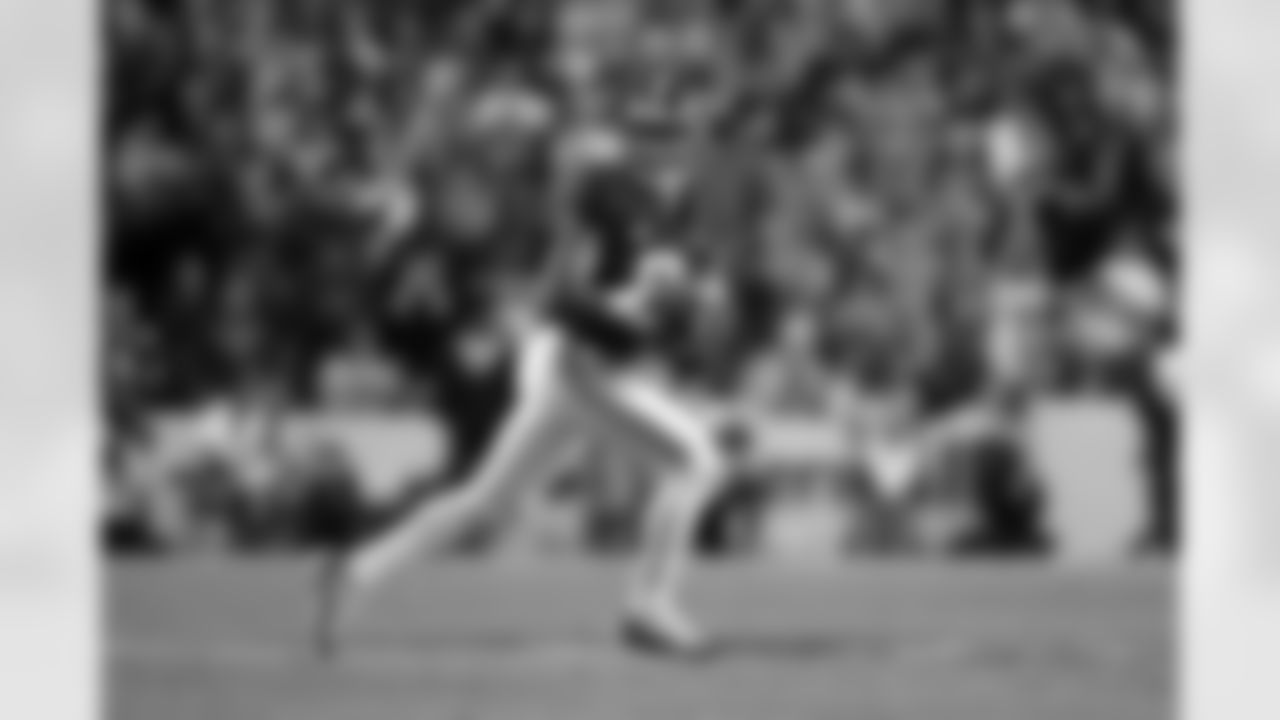
Alabama quarterback Bryce Young (9) during the first half of an NCAA college football game against LSU in Baton Rouge, La., Saturday, Nov. 5, 2022. (AP Photo/Tyler Kaufman)

Alabama quarterback Bryce Young (9) warms up on the sideline during the first half of an NCAA college football game against Mississippi in Oxford, Miss., Saturday, Nov. 12, 2022. (AP Photo/Thomas Graning)

Alabama quarterback Bryce Young, left, scrambles away from Auburn defensive end Marcus Bragg (98) during the first half of an NCAA college football game Saturday, Nov. 26, 2022, in Tuscaloosa, Ala. (AP Photo/Butch Dill)

Alabama quarterback Bryce Young (9) during the first half of an NCAA college football game against LSU in Baton Rouge, La., Saturday, Nov. 5, 2022. (AP Photo/Tyler Kaufman)

Alabama quarterback Bryce Young (9) during the first half of an NCAA college football game against LSU in Baton Rouge, La., Saturday, Nov. 5, 2022. (AP Photo/Tyler Kaufman)

Alabama quarterback Bryce Young (9) warms up on the sidelines during the first half of an NCAA college football game against Mississippi in Oxford, Miss., Saturday, Nov. 12, 2022. (AP Photo/Thomas Graning)

Alabama quarterback Bryce Young (9) looks to pass during the second half of an NCAA college football game against Mississippi in Oxford, Miss., Saturday, Nov. 12, 2022. Alabama won 30-24. (AP Photo/Thomas Graning)

Alabama quarterback Bryce Young (9) during the first half of an NCAA college football game against LSU in Baton Rouge, La., Saturday, Nov. 5, 2022. (AP Photo/Tyler Kaufman)

Alabama quarterback Bryce Young (9) during the first half of an NCAA college football game against LSU in Baton Rouge, La., Saturday, Nov. 5, 2022. (AP Photo/Tyler Kaufman)

Alabama quarterback Bryce Young (9) celebrates after throwing a pass for a touchdown during the second half of the team's NCAA college football game against LSU in Baton Rouge, La., Saturday, Nov. 5, 2022. LSU won 32-31 in overtime. (AP Photo/Tyler Kaufman)

Alabama quarterback Bryce Young (9) warmups before an NCAA college football game against Tennessee Saturday, Oct. 15, 2022, in Knoxville, Tenn. (AP Photo/Wade Payne)

Alabama quarterback Bryce Young (9) calls a play during the first half of an NCAA college football game against LSU in Baton Rouge, La., Saturday, Nov. 5, 2022. (AP Photo/Tyler Kaufman)
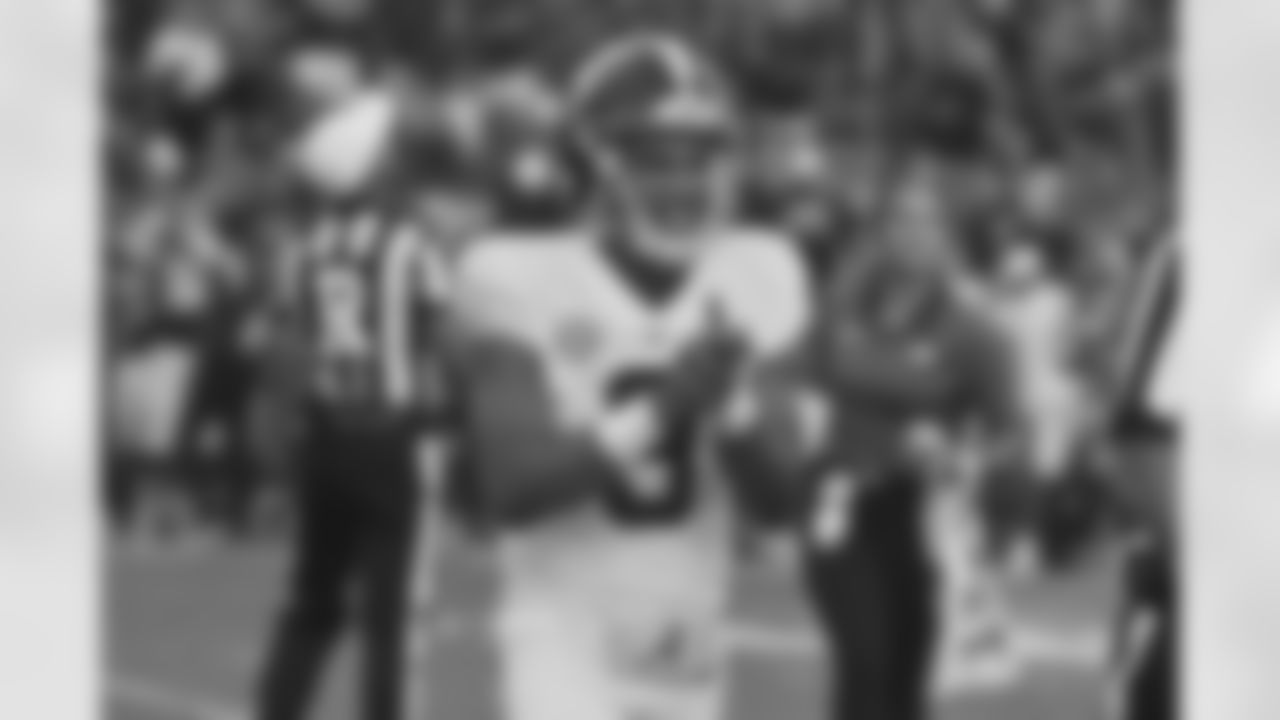
Alabama quarterback Bryce Young (9) on the sidelines during a time out against Arkansas during an NCAA college football game Saturday, Oct. 1, 2022, in Fayetteville, Ark. (AP Photo/Michael Woods)

Alabama quarterback Bryce Young (9) works away from pressure from Vanderbilt linebacker Anfernee Orji (0) during the second half of an NCAA college football game Saturday, Sept. 24, 2022, in Tuscaloosa, Ala. (AP Photo/Vasha Hunt)

Alabama quarterback Bryce Young (9) warms up before an NCAA college football game against Vanderbilt, Saturday, Sept. 24, 2022, in Tuscaloosa, Ala. (AP Photo/Vasha Hunt)

Alabama quarterback Bryce Young (9) runs a play against Arkansas during an NCAA college football game Saturday, Oct. 1, 2022, in Fayetteville, Ark. (AP Photo/Michael Woods)

Alabama quarterback Bryce Young (9) rolls to the edge against Louisiana-Monroe during the second half of an NCAA college football game, Saturday, Sept. 17, 2022, in Tuscaloosa, Ala. (AP Photo/Vasha Hunt)

Alabama quarterback Bryce Young (9) drops back to throw against Arkansas during an NCAA college football game Saturday, Oct. 1, 2022, in Fayetteville, Ark. (AP Photo/Michael Woods)

Alabama quarterback Bryce Young (9) drops back to pass against Arkansas during the first half of an NCAA college football game Saturday, Oct. 1, 2022, in Fayetteville, Ark. (AP Photo/Michael Woods)

Alabama quarterback Bryce Young warms up for the team's NCAA college football game against Vanderbilt, Saturday, Sept. 24, 2022, in Tuscaloosa, Ala. (AP Photo/Vasha Hunt)

Alabama quarterback Bryce Young (9) gets ready to run a play against Arkansas during the first half of an NCAA college football game Saturday, Oct. 1, 2022, in Fayetteville, Ark. (AP Photo/Michael Woods)
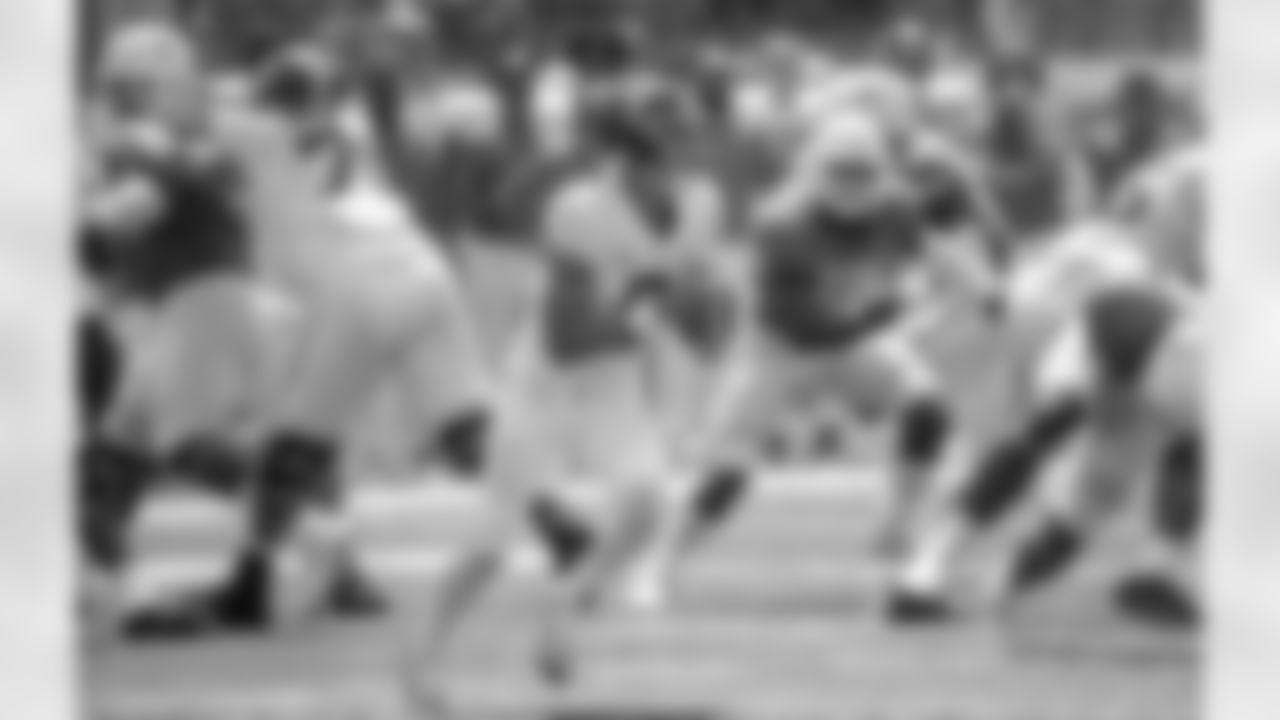
Alabama quarterback Bryce Young (9) looks down field for a receiver during action against Texas in the first half of an NCAA college football game, Saturday, Sept. 10, 2022, in Austin, Texas. Alabama defeated Texas 20-19. (AP Photo/Rodolfo Gonzalez)
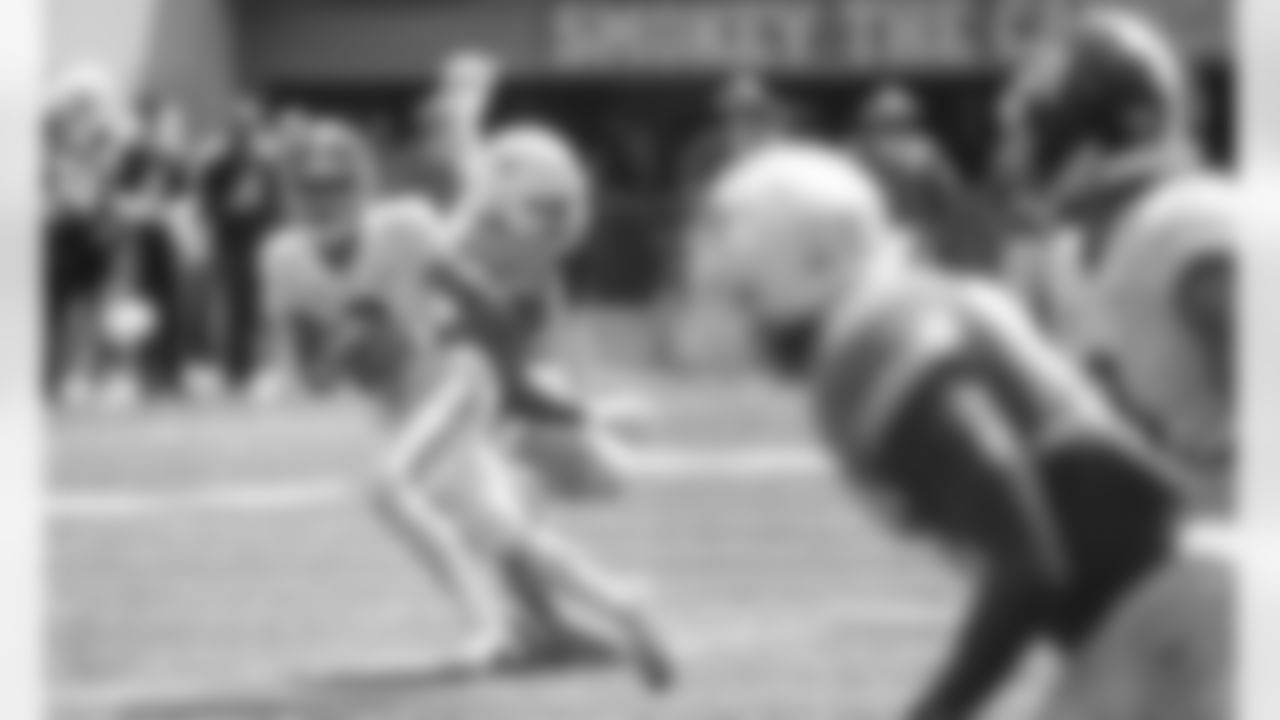
Alabama quarterback Bryce Young (9) scrambles away from Texas defensive lineman Moro Ojomo (98) and runs for a first down during the second half of an NCAA college football game, Saturday, Sept. 10, 2022, in Austin, Texas. Alabama defeated Texas 20-19. (AP Photo/Rodolfo Gonzalez)
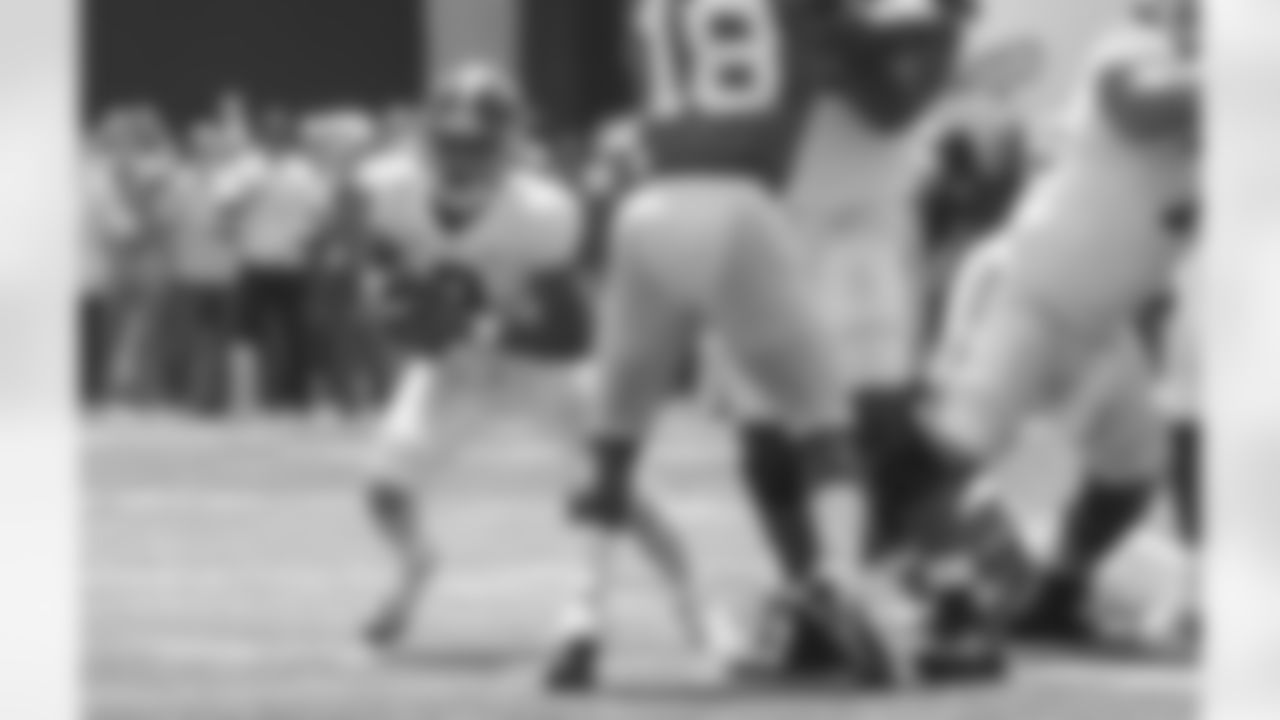
Alabama quarterback Bryce Young looks to run during the second half an NCAA college football game against Texas, Saturday, Sept. 10, 2022, in Austin, Texas. Alabama won 20-19. (AP Photo/Michael Thomas)

Alabama quarterback Bryce Young (9) communicates with center, Darrian Dalcourt (71) during action against Texas in the second half of an NCAA college football game, Saturday, Sept. 10, 2022, in Austin, Texas. Alabama defeated Texas 20-19. (AP Photo/Rodolfo Gonzalez)

Alabama quarterback Bryce Young (9) throws the ball against Utah State during the first half of an NCAA college football game, Saturday, Sept. 3, 2022, in Tuscaloosa, Ala. (AP Photo/Vasha Hunt)
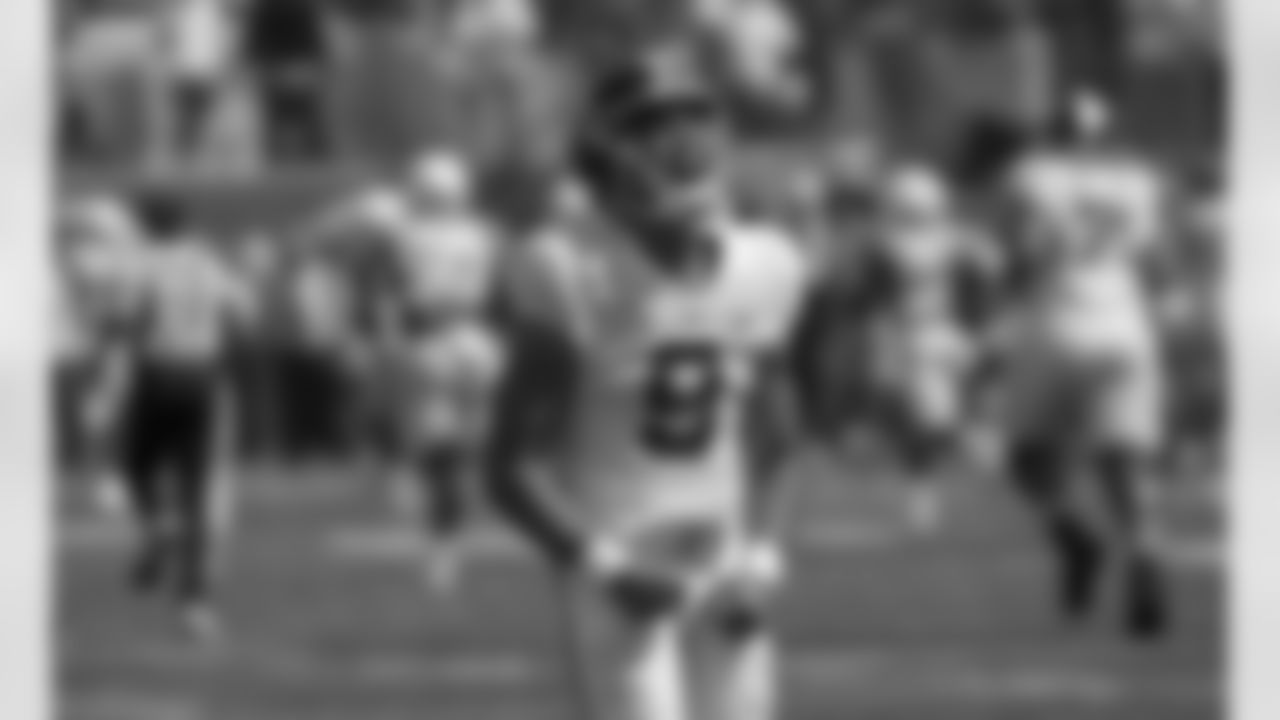
Alabama quarterback Bryce Young (9) celebrates against Texas during the first half of an NCAA college football game, Saturday, Sept. 10, 2022, in Austin, Texas. (AP Photo/Rodolfo Gonzalez)
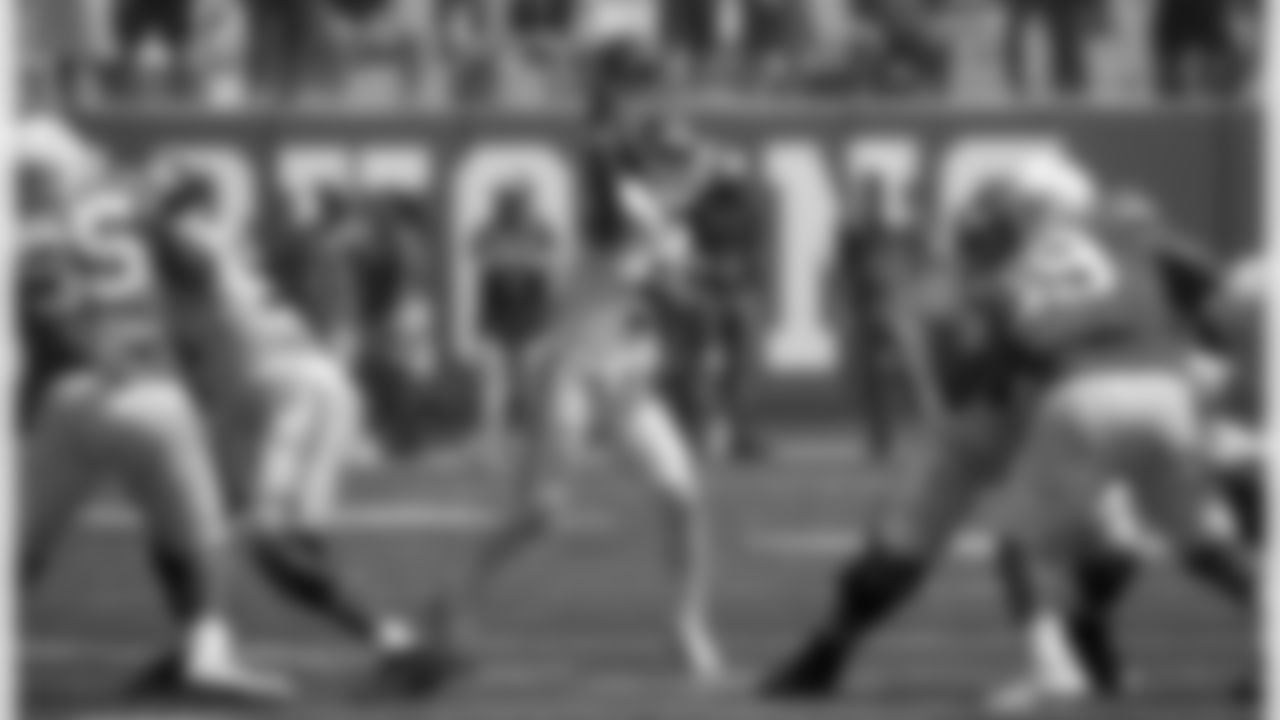
Alabama quarterback Bryce Young (9) throws a pass downfield against Texas during the first half of an NCAA college football game, Saturday, Sept. 10, 2022, in Austin, Texas. (AP Photo/Rodolfo Gonzalez)

Alabama quarterback Bryce Young (9) looks to throw a pass against Cincinnati during the first half of the Cotton Bowl NCAA College Football Playoff semifinal game, Friday, Dec. 31, 2021, in Arlington, Texas. (AP Photo/Michael Ainsworth)

Alabama quarterback Bryce Young (9) during an NCAA football game on Saturday, Sept. 3, 2022, in Tuscaloosa, Ala. (AP Photo/Vasha Hunt)

Alabama quarterback Bryce Young (9) throws a pass against Cincinnati during the first half of the Cotton Bowl NCAA College Football Playoff semifinal game, Friday, Dec. 31, 2021, in Arlington, Texas. (AP Photo/Michael Ainsworth)

FILE - Alabama quarterback Bryce Young (9) works against Georgia during the second half of the Southeastern Conference championship NCAA college football game Dec. 4, 2021, in Atlanta. Alabama plays Georgia in the College Football Playoff national championship game on Jan. 10, 2022.(AP Photo/John Bazemore, File)

Alabama quarterback Bryce Young (9) runs for a gain against Cincinnati during the first half of the Cotton Bowl NCAA College Football Playoff semifinal game, Friday, Dec. 31, 2021, in Arlington, Texas. (AP Photo/Michael Ainsworth)
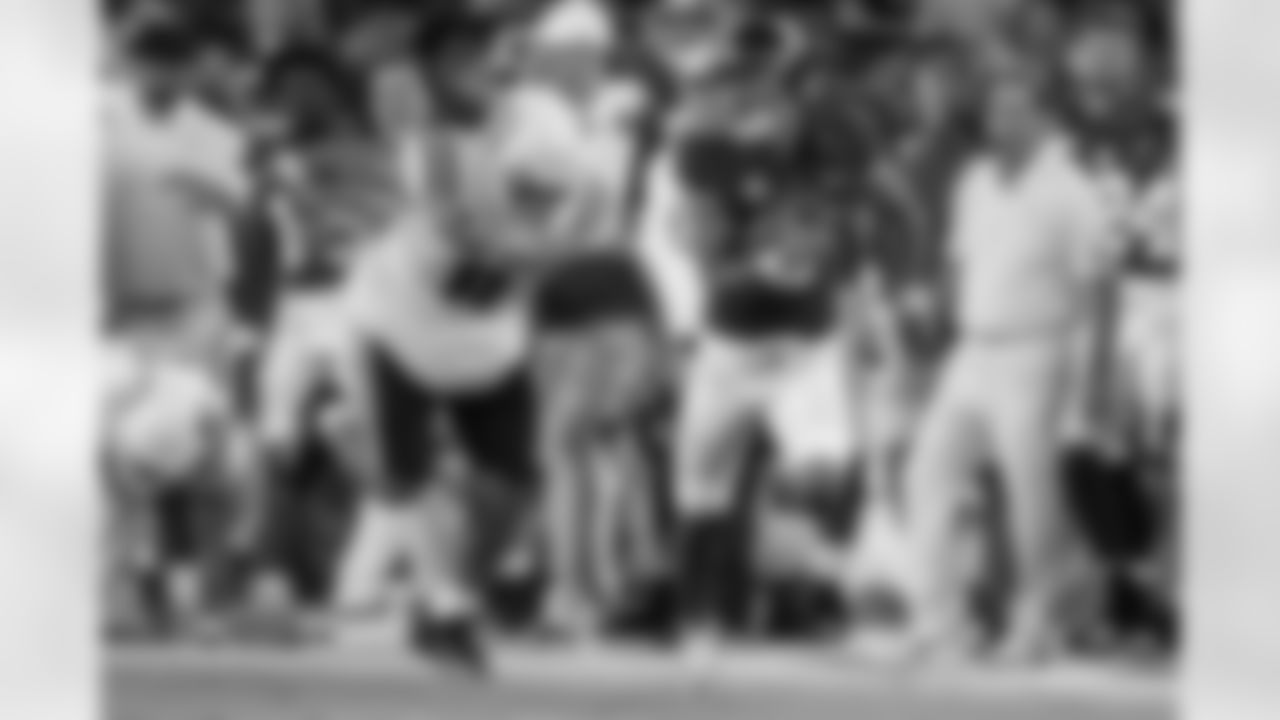
Alabama quarterback Bryce Young, front right, runs with the ball against Utah State defensive lineman Hale Motu'apuaka (8) during the first half of an NCAA college football game Saturday, Sept. 3, 2022, in Tuscaloosa, Ala. (AP Photo/Vasha Hunt)

FILE - Alabama quarterback Bryce Young (9) during warm ups before the start of an NCAA college football game against Auburn Saturday, Nov. 27, 2021, in Auburn, Ala. Alabama is No. 1 in the preseason AP Top 25 for the second straight season. (AP Photo/Butch Dill, File)

Alabama quarterback Bryce Young (9) runs with the ball during the Cotton Bowl NCAA College Football Playoff semifinal game, Friday, Dec. 31, 2021, in Arlington, Texas. (AP Photo/Michael Ainsworth)

Alabama quarterback Bryce Young (9) looks to throw against Arkansas during the second half of an NCAA college football game, Saturday, Nov. 20, 2021, in Tuscaloosa, Ala. (AP Photo/Vasha Hunt)

FILE - Alabama quarterback Bryce Young (9) celebrates after defeating Auburn in an NCAA college football game Saturday, Nov. 27, 2021, in Auburn, Ala.. (AP Photo/Butch Dill, File)

Alabama quarterback Bryce Young (9) runs against Georgia during the first half of the Southeastern Conference championship NCAA college football game, Saturday, Dec. 4, 2021, in Atlanta. (AP Photo/Brynn Anderson)

Alabama quarterback Bryce Young (9) looks for a receiver against Florida during the second half of an NCAA college football game, Saturday, Sept. 18, 2021, in Gainesville, Fla. (AP Photo/John Raoux)

FILE - Alabama quarterback Bryce Young (9) reacts after throwing a touchdown to tie the game in the second half of an NCAA college football game against Auburn, Saturday, Nov. 27, 2021, in Auburn, Ala. (AP Photo/Butch Dill, file)

Alabama quarterback Bryce Young (9) passes in the pocket against Georgia during the first half of the Southeastern Conference championship NCAA college football game, Saturday, Dec. 4, 2021, in Atlanta. (AP Photo/John Bazemore)

FILE - Alabama quarterback Bryce Young (9) throws a pass against Auburn during the first half of an NCAA college football game Saturday, Nov. 27, 2021, in Auburn, Ala. (AP Photo/Butch Dill, File)

Alabama quarterback Bryce Young (9) carries the ball against Auburn during the first half of an NCAA college football game Saturday, Nov. 27, 2021, in Auburn, Ala. (AP Photo/Butch Dill)

Alabama quarterback Bryce Young (9) reacts as he walks to the line for a play during the second half of an NCAA college football game against Auburn Saturday, Nov. 27, 2021, in Auburn, Ala. (AP Photo/Butch Dill)
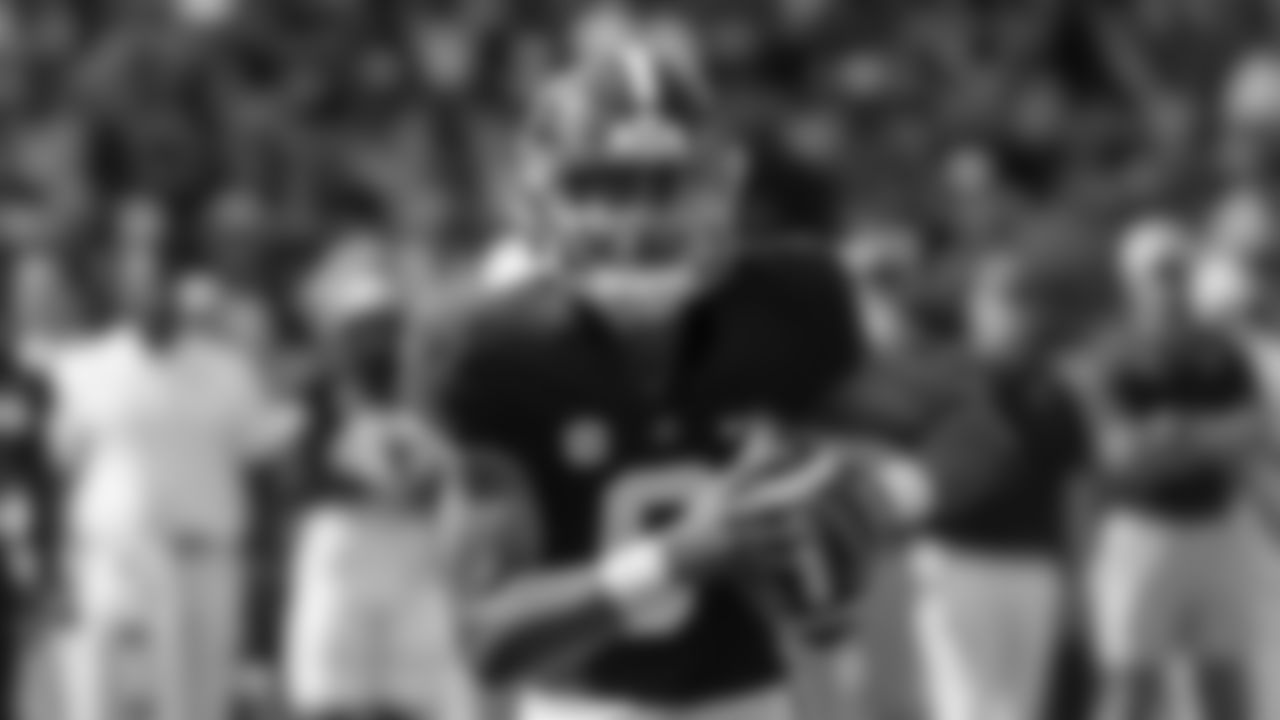
Alabama quarterback Bryce Young (9) during the first half of an NCAA college football game, Saturday, Sept. 11, 2021, in Tuscaloosa, Ala. (AP Photo/Vasha Hunt)

Alabama quarterback Bryce Young (9) warms up before an NCAA college football game against Southern Mississippi, Saturday, Sept. 25, 2021, in Tuscaloosa, Ala. (AP Photo/Vasha Hunt)

Alabama quarterback Bryce Young (9) warms up before an NCAA college football game against Auburn, Saturday, Nov. 27, 2021, in Auburn, Ala. (AP Photo/Vasha Hunt)















